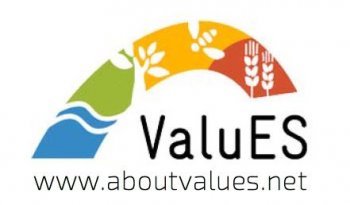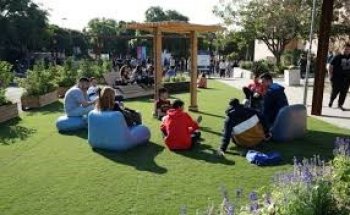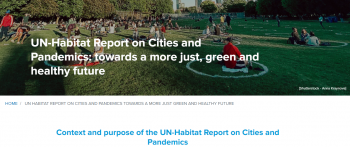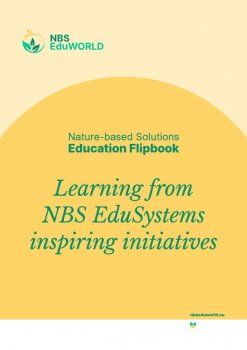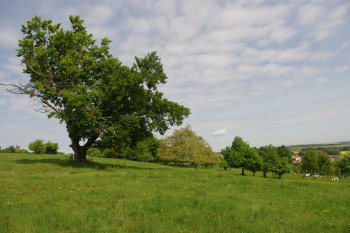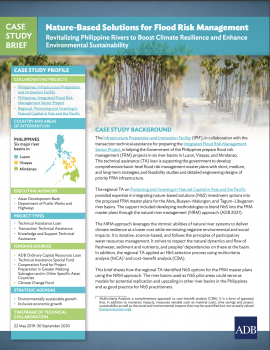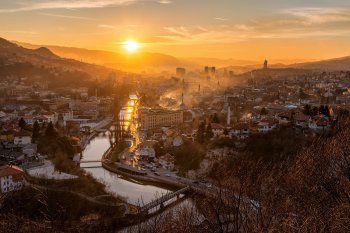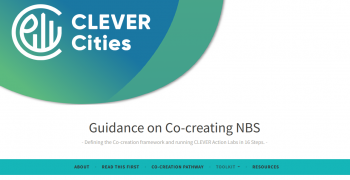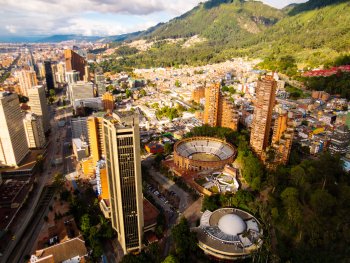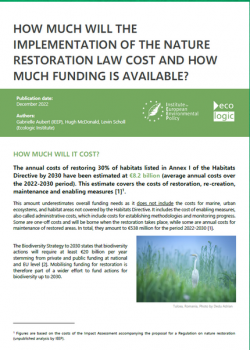Revitalizing Spaces
Methodology (accompanied by an online platform) for identifying and activating underused spaces through community-led proposals.
GIZ ValuES - Method Profile: Different interview formats
Interviews are a key method for obtaining first-hand information and field data on any aspect that is of interest. If well-conducted and properly analysed, interviews can significantly advance understanding of complex issues. Various formats exist: An in-depth interview captures how people value or
Manual of marine and coastal datasets of biodiversity importance
Knowledge of marine and coastal datasets tends to be fragmented and/or difficult to access for the non-expert or ad hoc data user. To address this lack of information, this document provides an overview of global marine and coastal datasets of biodiversity importance, and also includes some
CONNECTING NATURE CITY REPORT MALAGA, Urban garden in Lagunillas
The City of Malaga is implementing measures to improve the environment and thus also improve the quality of life of its citizens. The city is exploring ways to restore an ecosystem damaged by the impact of economic activity and through the Connecting Nature project, learn more about the
Pathways for Systemic Integration of Nature-Based Solutions
In this report, using the examples of climate change and biodiversity, we examine how stepping stones can be aligned to generate promising pathways for mainstreaming nature-based solutions that can contribute to diverse sustainability agendas in cities.
Green Infrastructure Valuation Toolkit
A toolkit for valuing the benefits of green infrastructure, consisting of a spreadsheet calculator and a user guide. Monetary and non-monetary values are calculated, generally using a benefits transfer approach. Can be used either to value a planned intervention, or existing green infrastructure.
Nature-based Solutions in the Nordic Region
The NetworkNature Nordic hub is a gathering place for all those who work with nature-based solutions in the Nordic region. It is a platform where we exchange contacts and share the knowledge, we gain about implementing nature-based solutions in our part of the world. Also, we post Nordic cases on
UN-Habitat Report on Cities and Pandemics: towards a more just, green and healthy future
The UN-Habitat’s report - Cities and Pandemics: Towards a more just, green and healthy future – evidences how cities can reduce the impact of future pandemics and become more prosperous, fair and environmentally friendly. The Report calls for the response and recovery to pandemics to be based on
NBS EduWORLD Flipbook - Nature-based Solutions-Learning from NBS EduSystems inspiring initiatives
Nature-based solutions (NBS) have gained solid ground in urban planning and design over the last decade. However, NBS education is still in a nascent stage and thus there is a gap in knowledge, skills and awareness of younger generations to be prepared to support mainstreaming NBS in all sectors
MEZŐGAZDASÁG: Agrárerdészeti tudástár
" Az agrárerdészet mezőgazdasági kultúra és fák harmonikus együtt-termesztése, kiegészítve esetleg más területhasználati módokkal, egy jövedelmező gazdálkodás kialakítása érdekében." Az alábbiakban a témához kapcsolódóan több, átfogó tudásanyagot gyűjtöttünk össze, melyek hasznos
Nature-Based Solutions for Flood Risk Management
The Infrastructure Preparation and Innovation Facility (IPIF), in collaboration with the transaction technical assistance for preparing the Integrated Flood Risk Management Sector Project, is helping the Government of the Philippines prepare flood risk management (FRM) projects in six river basins
CITIES TALK NATURE Webinars
CITIES TALK NATURE is a community of practice dedicated to restoring degraded ecosystems in municipalities in Latin America, Europe and other parts of the world. It explores the multiple advantages of restorative nature-based solutions and fosters exchange between cities. As part of the events, a
Connecting Nature communication, social media & events
In 2017, when Connecting Nature began, the concept of nature-based solutions was in its infancy. Since then, our partners have played an important role in creating and raising awareness about nature-based solutions and about the Connecting Nature Framework as a methodological approach to
- Audio
- Document
- Event
- Image
- Infographic
- Report
- Slides
- Video
Polish NbS Hub in Wroclaw
The establishment of the Hub will allow internal and external collaboration with other cities and organizations across the country to gather and transfer knowledge on nature-based solutions. The Hub's activities will focus on promoting the potential of nature-based solutions to reduce heat
Guidance on Co-creating NbS CLEVER Cities
This guidance contains a toolkit for the implementation of the co-creation process, including the 16 steps envisioned in a complete co-creation pathway to support cities to achieve successful implementation of nature-based solutions. On this website you can find all the useful tools, resources to
Method Factsheet - State and Transition Models
State-and-transition models (STMs) are conceptual models of ecosystem dynamics after disturbances based on alternate state theory (Kachergis et al. 2011). STMs combine the representation of alternate states and the factors that drive the transitions among states with tables of qualitative
D5.1: Report on comparative analysis of economic valuation models
Findings are presented from an investigation of nature-based solutions (NBS) research and case studies examining how projects address ‘co-benefits’, and particularly, their coverage of economic impacts.
How Much Will the Implementation of the Nature Restoration Law Cost and How Much Funding is Available?
The EU Commission published its proposal for a new Nature Restoration Regulation in June 2022. In this context, IEEP and Ecologic Institute – as part of the Think Sustainable Europe network – published a series of thematic policy briefs to inform Members of the European Parliament and other
How opportunistic mobile monitoring can enhance air quality assessment?
The deteriorating air quality in urban areas, particularly in developing countries, has led to increased attention being paid to the issue. Daily reports of air pollution are essential to effectively manage public health risks. Pollution estimation has become crucial to expanding spatial and
- ‹ previous
- 7 of 48
- next ›


